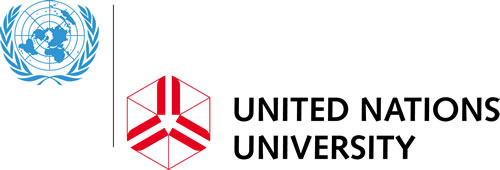(1)Forecast and assessment of climate and ecosystem change impact on agricultural production;
(2)Risk assessment of extreme weather events and introduction of adaptive water resource
management methods; and
(3)Planning and implementation of capacity development programs enabling local
residents and professionals to utilize the assessment results derived from (1) and (2).
The goal of the CECAR Africa project is to propose effective and implementable measures to build an integrated resilience enhancement strategy. This “Ghana model” can potentially be applied across the African Savannah. The findings of this project are expected to contribute to the framework of adaption measures agreed upon at the United Nations Framework Convention on Climate Change 16th session of the Conference of the Parties (COP16) and REDD+, the Fifth Assessment Report of the United Nations Intergovernmental Panel on Climate Change (IPCC), and the Aichi Biodiversity Targets adopted at the Convention on Biological Diversity tenth meeting of the Conference of the Parties (COP 10).
Three CECAR Africa projects members, Prof. Kazuhiko Takeuchi, Dr. Osamu Saito and Mr. Yaw Agyeman Boafo are FICESSA members. For further information, see:
[http://ias.unu.edu/en/research/enhancing-resilience-to-climate-and-ecosystem-changes-in-semi-arid-africa-cecar-africa.html#outline]
Outputs
- Journal Articles
-
Project background paper
Antwi, K; Otsuki, K; Saito, O; Obeng, F et al. 2014. Developing a Community-Based Resilience Assessment Model with Reference to Northern Ghana, Journal of Integrated Disaster Risk Management, Vol. 4 (1): 73-92. Available at
http://idrimjournal.com/index.php/idrim/article/view/101
Research outcomes from different thematic areas of the CECAR Africa project were published in the special issue of the Journal of Disaster Research in 1 August 2014. The special issue featured 13 articles applying various techniques and methods such as field surveys, questionnaires, focal group discussions, land use and cover change analysis, and climate downscaled modelling to investigate the impacts of climate and ecosystem changes on river flows and agriculture, and to assess local capacity for coping with floods, droughts and disasters, and for enhancing the resilience of farming communities. The articles are available and downloadable from:
http://www.fujipress.jp/JDR/DSSTR00090004.html - International Conference on Climate and Ecosystem Change
- The ‘International Conference on Enhancing Resilience to Climate and Ecosystem Changes in Semi-arid Africa’ was organized at the University for Development Studies, Tamale, Ghana on 6-7 August 2014. This conference was attended by over 140 participants including researchers, policy and decision makers and development practitioners from over 12 countries across Europe and Africa. Further information is available at http://supportoffice.jp/c_africa_conf2014/






